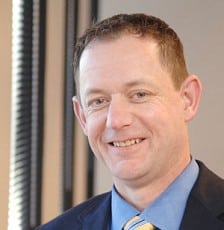A Closer Look: MATT HOSFORD

.floatimg-left-hort { float:left; } .floatimg-left-caption-hort { float:left; margin-bottom:10px; width:300px; margin-right:10px; clear:left;} .floatimg-left-vert { float:left; margin-top:10px; margin-right:15px; width:200px;} .floatimg-left-caption-vert { float:left; margin-right:10px; margin-bottom:10px; font-size: 12px; width:200px;} .floatimg-right-hort { float:right; margin-top:10px; margin-left:10px; margin-bottom:10px; width: 300px;} .floatimg-right-caption-hort { float:left; margin-right:10px; margin-bottom:10px; width: 300px; font-size: 12px; } .floatimg-right-vert { float:right; margin-top:10px; margin-left:10px; margin-bottom:10px; width: 200px;} .floatimg-right-caption-vert { float:left; margin-right:10px; margin-bottom:10px; width: 200px; font-size: 12px; } .floatimgright-sidebar { float:right; margin-top:10px; margin-left:10px; margin-bottom:10px; width: 200px; border-top-style: double; border-top-color: black; border-bottom-style: double; border-bottom-color: black;} .floatimgright-sidebar p { line-height: 115%; text-indent: 10px; } .floatimgright-sidebar h4 { font-variant:small-caps; } .pullquote { float:right; margin-top:10px; margin-left:10px; margin-bottom:10px; width: 150px; background: url(http://www.dmbusinessdaily.com/DAILY/editorial/extras/closequote.gif) no-repeat bottom right !important ; line-height: 150%; font-size: 125%; border-top: 1px solid; border-bottom: 1px solid;} .floatvidleft { float:left; margin-bottom:10px; width:325px; margin-right:10px; clear:left;} .floatvidright { float:right; margin-bottom:10px; width:325px; margin-right:10px; clear:left;} Are you originally from Central Iowa?
Actually, I was a Welsh citizen; I was born in Wales and I lived there until I was 6 in a military family. After that, we pretty much moved all over and lived in lots of different places.
What prompted you to pursue a degree in pharmacy?
I think most pharmacy students will tell you that they didn’t plan on getting a pharmacy degree. I actually just had an interest in chemistry and my background and strength in school was in science; I just sort of discovered pharmacy.
How did your career in pharmacy start out?
I had the opportunity to buy into the original Medicap (Pharmacy) over by the governor’s mansion. I was working there as an intern, and I had an opportunity to start buying into that. Unfortunately, the owner got ill and left sooner than I was able to do that. I thought that was what I wanted to do, just have a corner drugstore.
What did you do next?
I started looking at hospital pharmacy as an opportunity to expand my experience. I had done a lot of work with oncology patients, so I had an interest in pursuing that, which is how I wound up at (Iowa Methodist Medical Center).
Was it a natural move into benefits management?
I really started out in a more clinical role (with AdvancePCS). They were looking for someone with pain management/oncology experience to be a drug expert for the PBM (pharmacy benefits management company). That was how I got my start in managed care. I had the opportunity to move into a director role, to oversee the pharmacy role for the PBM, and just had a lot of fun managing the overall pharmacy benefit for the PBM.
What prompted you to return to Iowa?
When you live in Iowa long enough and leave, it’s always nice to come home. It’s just a great place to live. My sister and her three boys live just a few houses down the road. That’s family.
What has been the biggest trend in pharmacy management in recent years?
The prevailing trend is (centered) around more specialized treatment or therapies. We’re doing things like using the immune system to treat conditions like rheumatoid arthritis. So I think the sophistication in how we treat disease is really the biggest trend. And from a member perspective, compliance and adherence (getting people to take their prescribed medications) continue to be one of the biggest challenges in health care.
How do you balance cost-control measures with the need for customers to have access to the latest drugs?
I think that’s probably one of the greatest things about Wellmark; that balance is the most important thing. Having access to cost-effective therapy, not just less costly therapy, is sort of the guiding principle of how we make those types of decisions. I think sometimes it may be a little misunderstood what that necessarily means. When you’re looking at medications that work the same way, accomplish the same thing, have basically the same side effects and one costs half as much, it seems reasonable that the one that costs half as much should be the one that gets promoted to members so that there are more health-care dollars to spend in other areas where those easy choices may not exist.
You returned from Iraq three years ago after serving there for 14 months. What did you do there?
I was attached to a transportation company; I was a gun-truck platoon leader. Basically we provided convoy security. … It is a very dangerous place, so any time that you’re off the base and in the country, you expose soldiers to that risk.
What’s the philosophy that you live by?
It’s definitely “live for today.” I think being in a situation like Iraq sort of puts your life in that perspective.
What accomplishment are you most proud of?
I think to date, it would have to be that all of my soldiers came home.








